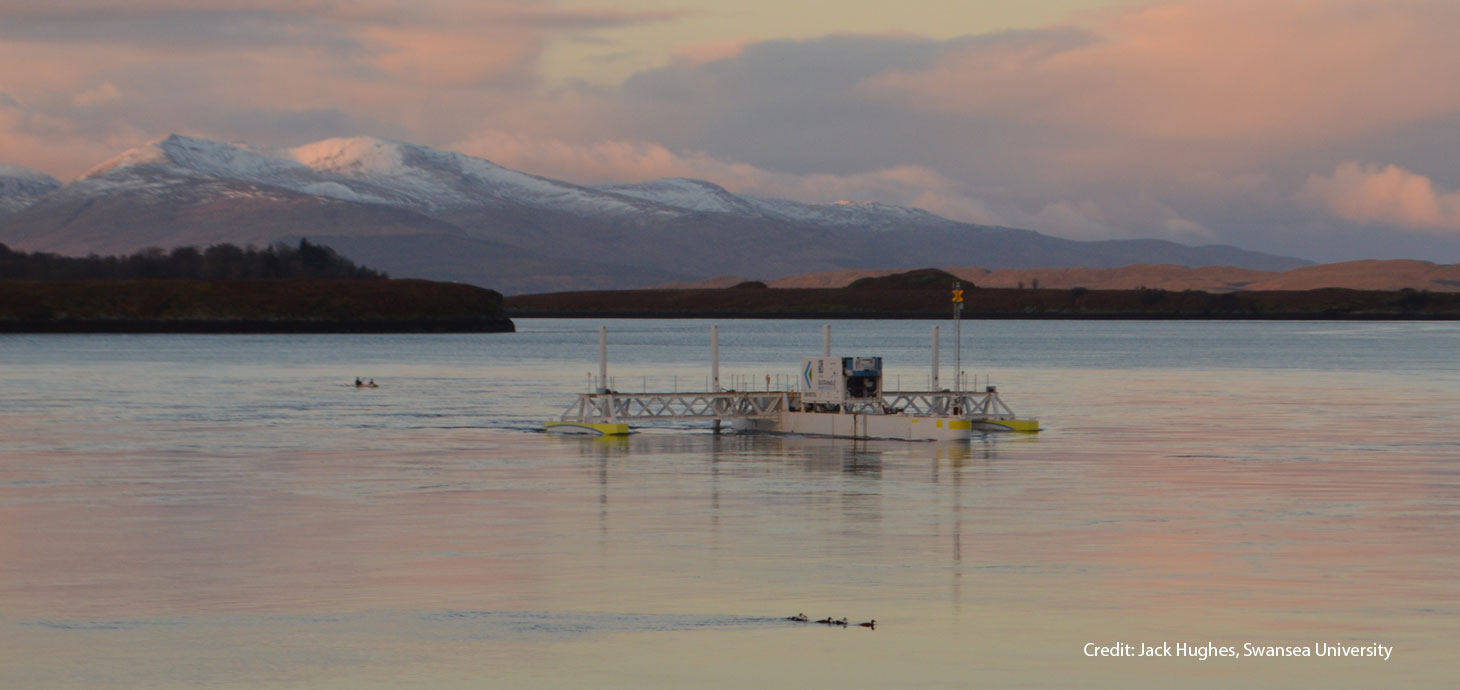
The ocean is a very complex environment, and the main aim for the marine energy sector is to design the most cost-effective energy capture device for this environment: one that requires minimal intervention maintenance to deliver good performance. No one organisation has all the answers to the questions that need answering, so collaboration is essential to the continuing success of this industry. Here we discuss how the University is helping the industry achieve its goals.
Swansea University has been working together with the marine energy industry for two decades and has found this collaborative approach works best for the questions that will need answers two to three years further down the development pathway.
In the past year, Swansea’s marine energy researchers have had several successes that could only have been achieved in collaboration with industrial partners:
- Marine Power Systems: exploring the how the costs of energy changes with the layout of the WaveSub wave energy device;
- Bombora: Building a thermo-visco-elastic continuum mechanics model of membrane materials;
- Magallanes and Sabella, tidal turbine technology companies: Prediction of fatigue loading on rotors using experimental and numerical methods;
- Sustainable Marine Energy: reproduction of floating tidal turbine movement path and station keeping from sensor measurements.
Building on these recent research successes, researchers are working on several other projects that contribute to solving challenges for the wider marine energy industry, including the University’s work on wave turbulence separation and wave resource classification. Aerial drone surveying has been applied to tidal range and tidal stream applications. Currently, the team are developing new sensor deployment systems and new sensors, together with low-cost data logging.
Another important strand of research is the interaction of ocean energy devices with the environment, an area of study for our marine biology colleagues through the SEACAMS2 project. The main objective of SEACAMS2 is to assist the development of opportunities in low carbon, energy and environment in the convergence regions of Wales, and is an investment in the potential offered by the marine economy and marine renewable energy.
Continual engagement with industrial partners is essential in ensuring that the projects keep a focus on the marine energy sector’s needs.
To discuss collaborating with Swansea University on Research & Innovation within the Marine Energy sector, please contact our business engagement team.
Further information on the Marine Energy sector in Wales is available via our recent Blue Economy webinar.
